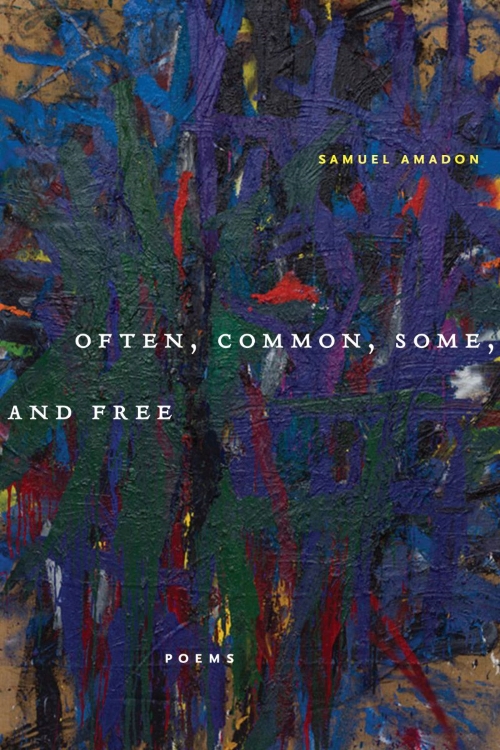Dear, neither of us has anymoney. Let’s saywe leave that field open, as inwe don’t completethe form. I see nothing heresays it is required.Maybe this is the other kindof field. Grass, etc.That makes sense to me.Dear, neither of us has anymoney. Let’s saythere’s an Adirondack chair,the affordable plastic kind.Maybe those are rubber.Maybe I don’t know whatrubber is. Me. Forget it,we know the park is free.Rather, further, also, trees.There’s a soft line of them. Softas in thin and irregular.The trees themselves are full.Their shadows crossour blanket, as in let’s saywe have a blanket, whichwe move where the sun’sgot the same feel to it. Still.You instruct me: be still.Dear today. Dear yesterday.What a lot of places I movedmyself around then.Again. Sunny afternoonsmy father sits ina plastic Adirondack chairwith his fingers foldedand his shirt open. No onelistens, he doesn’t speak.It’s nice he thinks of itas a privilege, but nicerstill that he does it.Again. What did I say?The field is open, as inincomplete. The grass,I don’t have a word forexcept, rather, excuse me,please. Please,as in this afternoon,stay inthe park with me.
Often, Common, Some, and Free
Feature Date
- February 20, 2022
Series
Selected By
Share This Poem
Print This Poem
“Often, Common, Some and Free” from OFTEN, COMMON, SOME AND FREE: by Samuel Amadon.
Published by Omnidawn October 21st, 2021.
Copyright © 2021 by Samuel Amadon.
All rights reserved.
Reproduced by Poetry Daily with permission.

Oakland, California
"I soaked up these poems like a character wandering from pool to pool in a John Cheever story. I dove into them as into an enchanted David Hockney swimming pool painting. Samuel Amadon immerses you in the ‘advanced fantasies’ of a silver-tongued poet. Meaning is never exactly narrative. It’s saturated with vernacular fluency, lyrical acuity, expressive idiosyncrasy. You simply have to read this fascinating book to grasp its mercurial energies, its enigmatic clarity. Often, Common, Some, and Free is remarkable and wonderfully irreducible."
—Terrance Hayes, author of American Sonnets for My Past and Future Assassin
"These poems Beatrice us into an infrastructure-past, natter us through a not-so-grand civic grandeur that’s something like a citizenship stolen from us before we were ever born. You might want to chlorinate your feet after you break open this spine—it seems every genius has a red velvet swing to hide. Get your coffee to go."
—Magdalena Zurawski, author of The Tiniest Muzzle Sings Songs of Freedom
Poetry Daily Depends on You
With your support, we make reading the best contemporary poetry a treasured daily experience. Consider a contribution today.




